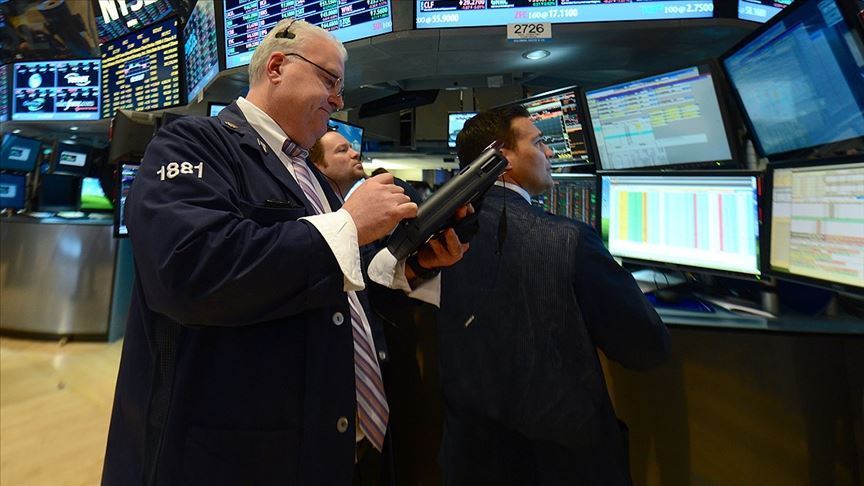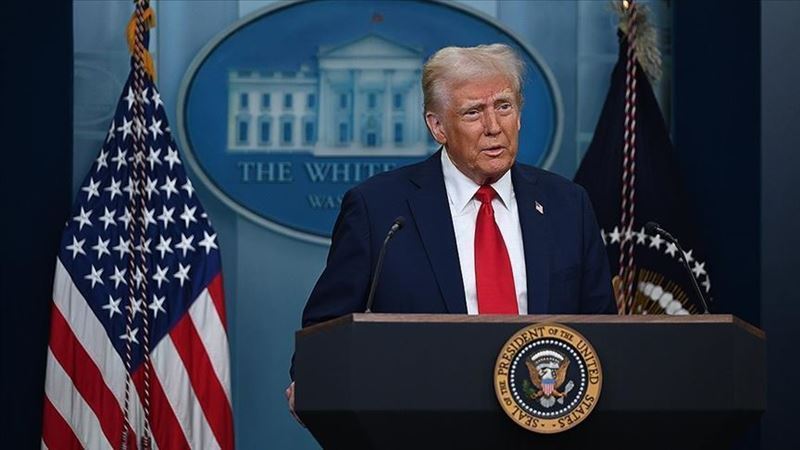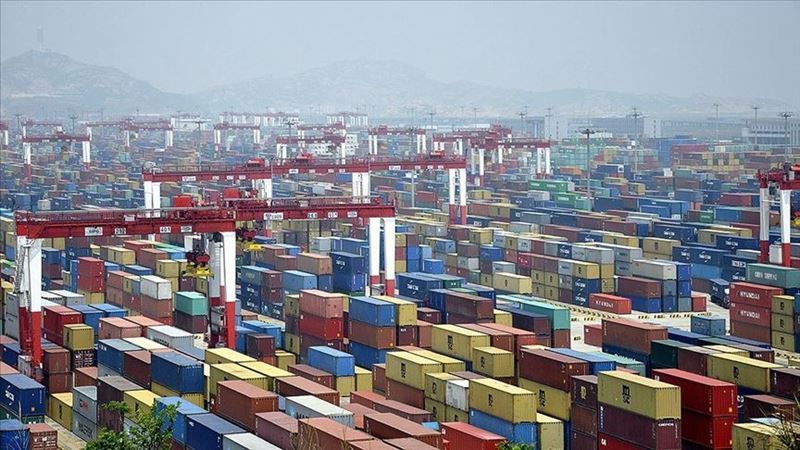While Russia's military operation against Ukraine continued, explosions were heard in Kiev, the capital of Ukraine, where general mobilization was declared. Russian President Vladimir Putin described the operation as "measures to be taken" and said, "Russia continues to be a part of the world economy and does not plan to harm this system." said.
While the reactions from the international community to stop the operation continued to come, harsh sanctions were announced one after another from the European Union (EU), USA, England and Japan.
EU member states have introduced new sanctions against Russia in various fields such as finance, energy, transportation, export control and financing, and visa policy. Ursula von der Leyen, President of the European Commission, stated that this package includes financial sanctions that prevent Russia's access to the most important capital markets. " used the phrase.
While the US administration added 4 Russian banks to the sanctions list, including Russia's second largest financial institution VTB Bank, it froze a total of 1 trillion dollars in assets of these banks. On the other hand, new debt and equity restrictions were imposed on 13 large Russian enterprises, including Sberbank and Gazprom.
U.S. President Joe Biden stated that the sanctions will bring serious costs to the Russian economy and limit Russia's ability to do business with the dollar, euro, sterling and yen. It's not a decision he wants." said.
While the UK announced a new additional sanctions package targeting all major Russian banks, 5 Russian oligarchs and more than 100 companies and individuals, Japan expanded the scope of the sanctions package.
After the sanctions against Russia were increased, it is observed that the Asian stock markets and the US and European index futures showed a mixed course this morning, and the risk perception relatively calmed down. On the other hand, it is noteworthy that the rise in commodity prices continues, but slows down. The barrel price of Brent oil, which saw over $ 102 for the first time since 2014 yesterday and completed the day at $ 95.7, is at $ 97.3 with an increase of 1.7 percent today. The ounce price of gold is moving around $1,913 today, after seeing the 17-month high of $1,974 yesterday. Wheat prices, which rose by 5.7 percent yesterday, saw the highest level since June 2008 today.
RTS index in Russia closed the day at 742.9 points with a loss of 38.3 percent after a decrease of up to 50 percent yesterday, while the dollar/Russian ruble parity reached its highest level in its history with 89. While it was announced that Moscow markets would be closed today in the face of this development, the Central Bank of Russia intervened in the foreign exchange markets and stated that it has clear plans for all kinds of scenarios.
Discussions on how geopolitical developments will affect the steps of central banks, which are already giving signals of tightening monetary policy in the face of rising inflation, are also closely followed. Atlanta Fed President Raphael Bostic stated that the bank is closely monitoring the situation in Ukraine, while Cleveland Fed President Loretta Mester said that she still supports the start of interest rate hikes in March and the imminent balance sheet reduction. Richmond Fed Chairman Thomas Barkin said it was too early to decide whether Russia's military action against Ukraine would cause the Fed to change its rate-raising plans.
With these developments, the indices in the New York stock market, which started the day with a sharp decline, turned upward after the announcement of the sanctions against Russia. The Dow Jones index gained 0.28 percent, the S&P 500 index gained 1.50 percent and the Nasdaq index gained 3.34 percent. The dollar index is at 96.9 today, after seeing its highest level since June 2020 with 97.7 yesterday. The US 10-year bond yield, on the other hand, rose again to 1.96 percent after falling to 1.85 yesterday.
While the concerns about the effects of the rise in energy prices on inflation and economic sanctions on growth increased in Europe, natural gas prices increased by 61 percent to 144 euros in March futures contracts in Europe. On the side of the stock markets, which closed before the effect of purchases in the New York stock market increased, there were losses of close to 4 percent yesterday. DAX 30 index decreased by 3.96 percent in Germany, CAC 40 index decreased by 3.83 percent in France and FTSE 100 index decreased by 3.88 percent in England. The euro/dollar parity, which declined to the 1.11 limit yesterday, is traded at 1.1220 levels today.
On the Asian side, it is seen that the new day started with a positive mood in the US stock markets, while the Nikkei 225 index in Japan increased by 1.8 percent, Shanghai composite index in China and Sensex index in India increased by 0.8 percent near the closing.
Domestically, the BIST 100 index, which started the day with a sharp decline in Borsa Istanbul yesterday and the circuit breaker system was operating as of the opening, finished the day at 1,851.38 points with a depreciation of 8.17%. Dollar/TL decreased after seeing the highest level in 2 months with 14.6548 yesterday due to the increasing pressure on emerging market currencies and is trading at 14.0370 at the opening of the interbank market today.
Analysts said that Russia's military intervention in Ukraine and the increasing risk perception on a global scale were relatively calmed by the announced sanctions, and that volatility in the markets may continue as the risks related to the issue are still on the table.
Emphasizing that the reflections of the developments on energy prices will be critical in terms of inflation expectations and the course of monetary policies, and the importance of verbal guidance in this context has increased, the analysts stated that the statements of the UK, USA and European central bank officials will be followed today.
Analysts noted that the economic confidence index in the country, personal income and expenditures abroad, durable goods orders, consumer confidence index in the Eurozone and growth in Germany came to the fore in the data agenda, and technically, the level of 1,830 in the BIST 100 index was supported. He reported that 2,000 points are in the resistance position.
The data to be followed in the markets today are as follows:
10.00 Turkey, February economic confidence index
10.00 Germany, 4th quarter growth
13.00 Eurozone, February consumer confidence index
16.30 US, January personal income and expenses
16.30 US durable goods orders for January
18.00 US, pending home sales for January
18.00 US, February Michigan consumer confidence index











Comments
No comment yet.